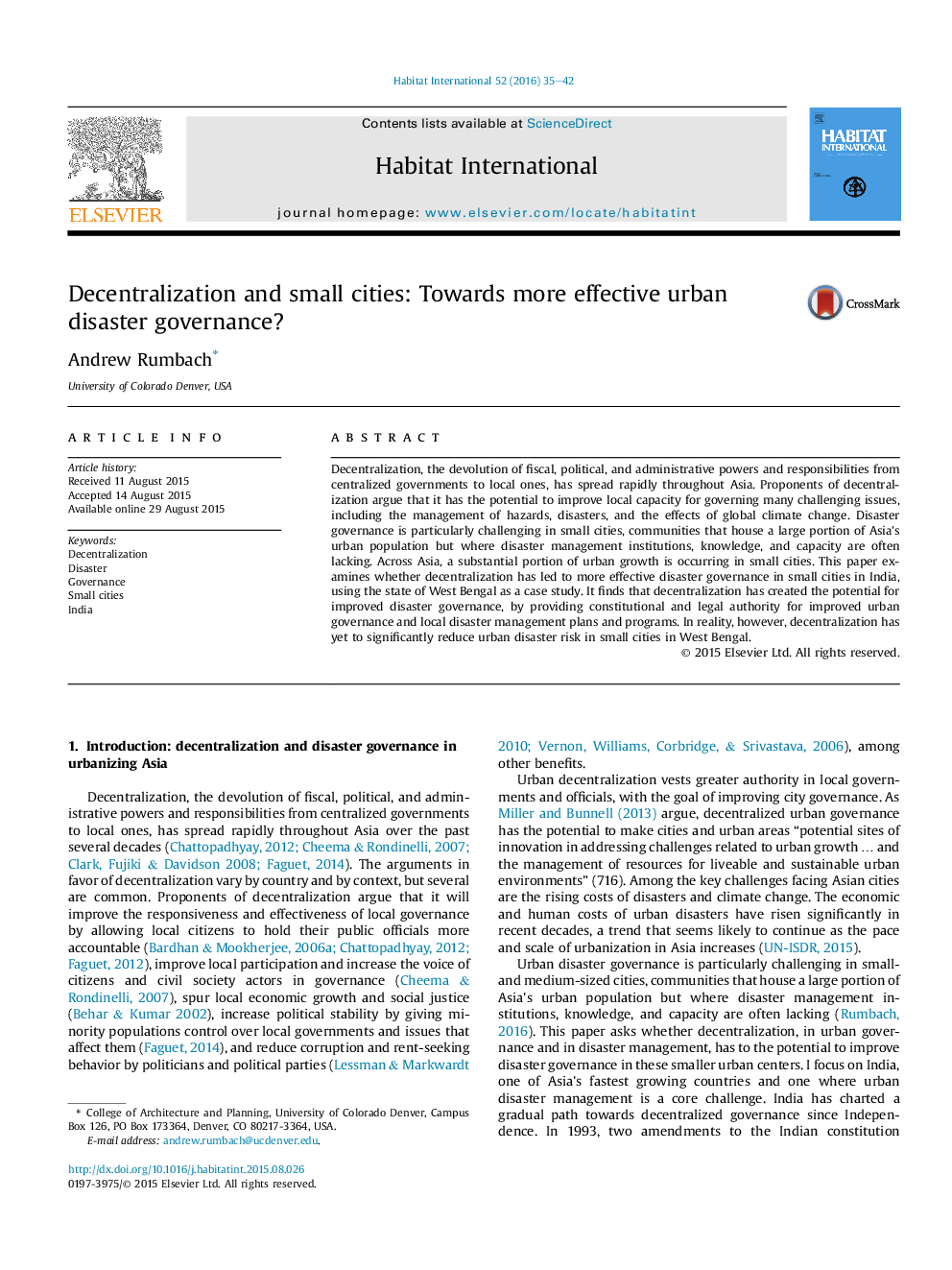| Article ID | Journal | Published Year | Pages | File Type |
|---|---|---|---|---|
| 1047724 | Habitat International | 2016 | 8 Pages |
•Indian urbanization is characterized in part by a growth in the number and size of small cities.•Disaster governance is a key challenge for small cities.•Decentralization, of urban government and disaster management, has laid the groundwork for improved disaster governance.•The case of West Bengal shows that the theoretical benefits of decentralization have yet to materialize.
Decentralization, the devolution of fiscal, political, and administrative powers and responsibilities from centralized governments to local ones, has spread rapidly throughout Asia. Proponents of decentralization argue that it has the potential to improve local capacity for governing many challenging issues, including the management of hazards, disasters, and the effects of global climate change. Disaster governance is particularly challenging in small cities, communities that house a large portion of Asia's urban population but where disaster management institutions, knowledge, and capacity are often lacking. Across Asia, a substantial portion of urban growth is occurring in small cities. This paper examines whether decentralization has led to more effective disaster governance in small cities in India, using the state of West Bengal as a case study. It finds that decentralization has created the potential for improved disaster governance, by providing constitutional and legal authority for improved urban governance and local disaster management plans and programs. In reality, however, decentralization has yet to significantly reduce urban disaster risk in small cities in West Bengal.
